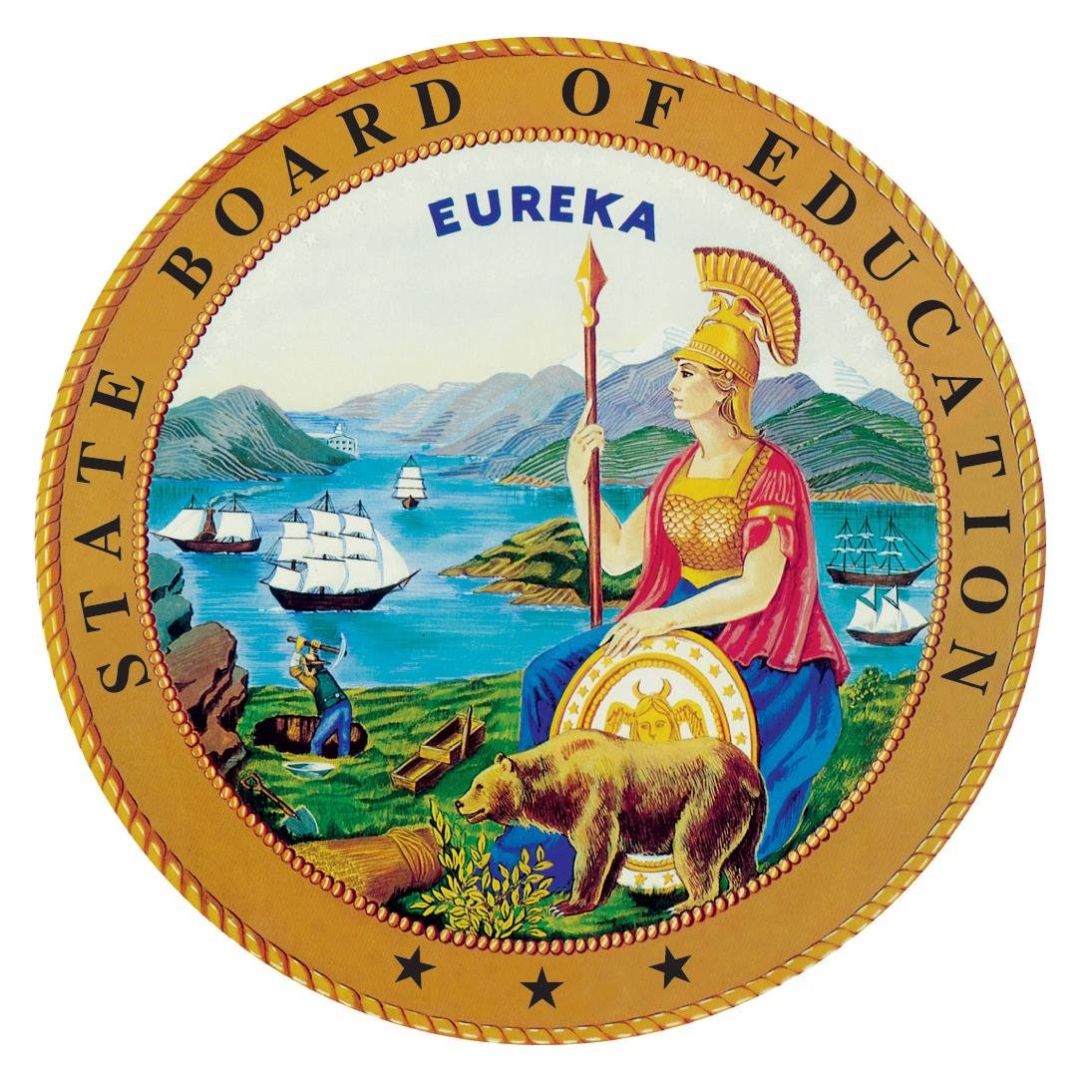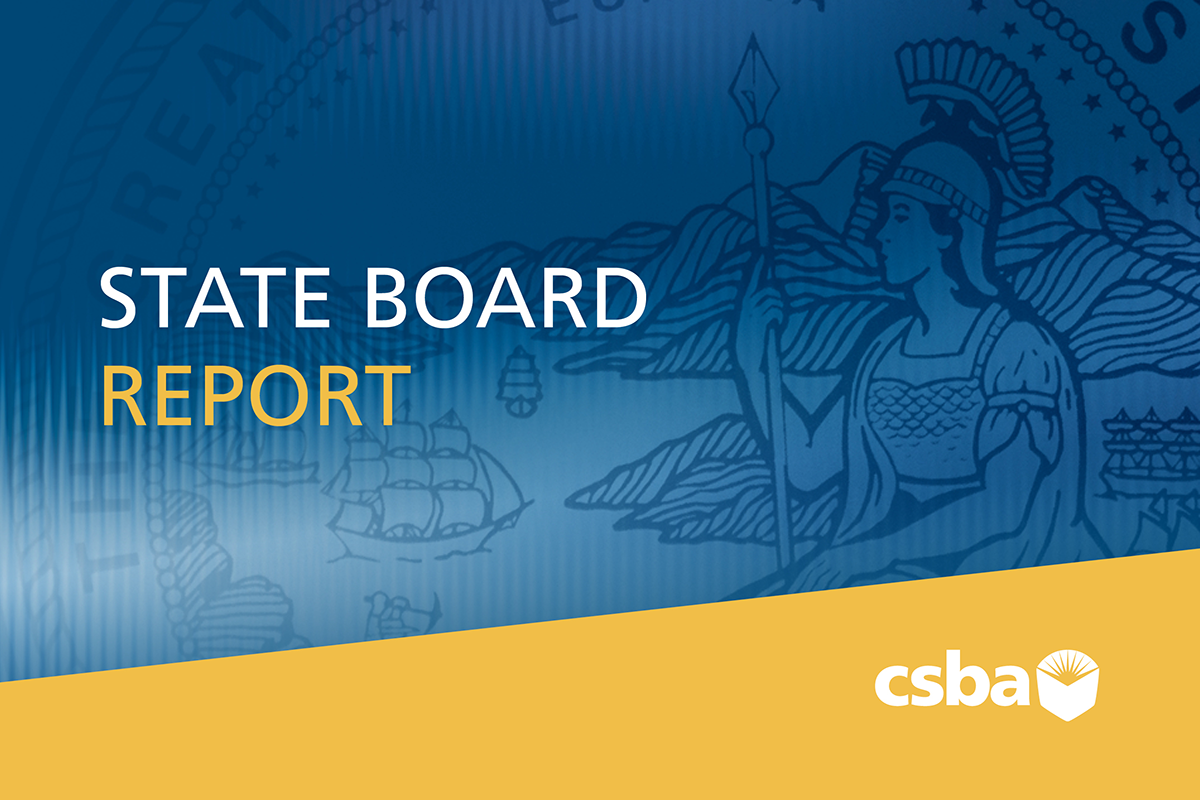On Feb. 28, Gov. Gavin Newsom announced the following appointments to the State Board of Education: Gabriela Gonzalez, an elementary school teacher for the Montebello Unified School District since 2001; Brenda Lewis, former associate superintendent of instruction at the Kern High School District from 2014 to 2021; and Sharon Olken, executive director of Gateway Public Schools since 2011. All three were sworn in at the start of the board’s March 9–10 meeting, during which the board took action revising school accountability reporting to account for COVID impacts, approved several waivers and more.
State educational agencies received waivers from federal accountability requirements for the 2019–20 and 2020–21 school years and from the assessment requirements for the 2019–20 school year. As a result, many states have not implemented all aspects of their statewide accountability systems or identified schools for support and improvement since fall 2019.
California Department of Education staff provided an update on accountability-related work, including an overview of the 2020–21 California Assessment of Student Performance and Progress and English Language Proficiency Assessments for California data release and items for considerations for the accountability workplan for 2022 and beyond (specifics can be found here).
This work is “not simple at all as we try to ensure that our accountability system continues to be a reflective of what was needed in the midst of all of the changes that have happened” during the pandemic, said board Vice President Cynthia Glover-Woods. “A restart is critical, and it’s time for us to continue to move forward with this robust accountability system to be sure that our schools receive the supports that they need.”
The board is attempting to reconcile the lack of reliable school accountability data as a result of the pandemic with a requirement by the U.S. Department of Education to “resume identifying schools for comprehensive, targeted, and additional targeted support and improvement using data from the 2021–22 school year in the fall of 2022 … as quickly as possible.”
In California, Assembly Bill 130 restricts the CDE to only use performance data on the state (i.e., status only) and local indicators from the 2021–22 school year for purposes of identifying local educational agencies for technical assistance or intervention. Student progress is not being reported this year, as reliable, comparable state data is unavailable for the last couple years as a result of the pandemic.
Alternative school accountability waiver approved
As part of the same item, the board approved the 2021–22 addendum for the consolidated state plan due to COVID-19 for submission to the federal Education Department and for the state to pursue a waiver to allow California to maintain current Dashboard Alternative School Status (DASS) methods for calculating Academic Achievement and Graduation Rate indicators. The department in January denied the amendments to California’s Every Student Succeeds Act State Plan, which sought to bring the DASS modified methods into compliance with Elementary and Secondary Education Act requirements while ensuring DASS schools were evaluated fairly and held accountable for student achievement.
Alternative schools typically have lower graduation rates than traditional campuses and rank lower on accountability measures than more conventional schools. However, these schools also serve those students who have not been successful in regular schools, often because of behavior, disciplinary or other concerns. They also include juvenile court schools and special education schools.
According to CDE staff, the waiver will focus on why California’s current DASS program is the most effective way to fairly evaluate the success or progress of alternative schools that serve high-risk students and detail the rationale for developing modified methods for the two indicators. The proposal will also demonstrate that the modified academic and graduation rate measures do not impact the state’s ability to meaningfully differentiate among schools and that changing these measures would lead to providing fewer resources to schools with the greatest need. Public comment on this proposal is open through March 30.
Several board members expressed support of the waiver, including Glover-Woods, who called pursuance of the DASS waiver critical, and noted that the methodology the board approved for DASS school accountability in 2017 was done so thoughtfully and was reflective of “the data for students in California that attend those schools.”
In other State Board meeting news:
- The board approved Career Technical Education Incentive Grant allocations for fiscal year 2021–22, as well as an allocation formula, specific funding amounts and number of grant awards, purposes for grant fund use and allowable and non-allowable expenditures.
- The board approved the revised student score reports for both the 2022–23 Initial English Language Proficiency Assessments for California (ELPAC) and Initial Alternate English Language Proficiency Assessments for California (Alternative ELPAC). The proposed revisions are necessary to reflect recent updates to test administration and ensure that key information regarding student performance is communicated clearly to families, according to CDE staff. Additionally, based on feedback provided during the January SBE meeting, a description of what the ELPAC is has been incorporated into the “Why” sections of both the ELPAC and Alternate ELPAC score reports to be consistent with other student score reports, among other small changes.
- The CDE received approval from the board to submit to the U.S. Department of Education a draft waiver package that includes a waiver of the requirement to assess 95 percent of all eligible students in English language arts, mathematics and science for 2020–21; a waiver of the requirement to assess less than 1 percent of eligible students with alternate assessments be submitted at least 90 days before the beginning of the annual testing window for the administration of the statewide assessments; a waiver of the requirement to assess less than 1 percent of eligible students with an alternate assessment for ELA, mathematics and science for the 2021–22 administration; and an extension of the plan to report preliminary indicator results for the 2020–21 administration of the California Alternate Assessments for science. Learn more here.
- The board approved the commencement of a 45-day public comment period for proposed amendments to California Code of Regulations, Title 5, Section 3043, clarifying that LEAs should consider least restrictive environment (LRE) in making determinations related to extended school year. The Individuals with Disabilities Education Act has a provision known as LRE that states that, to the maximum extent appropriate, children with disabilities be educated with children who are not disabled, and only separated from the general classroom setting when the nature or severity of the disability is such that education in regular classes with the use of supplementary aids and services cannot satisfactorily be achieved.
The next State Board meeting is scheduled for May 18–19, 2022. View the full meeting calendar.



